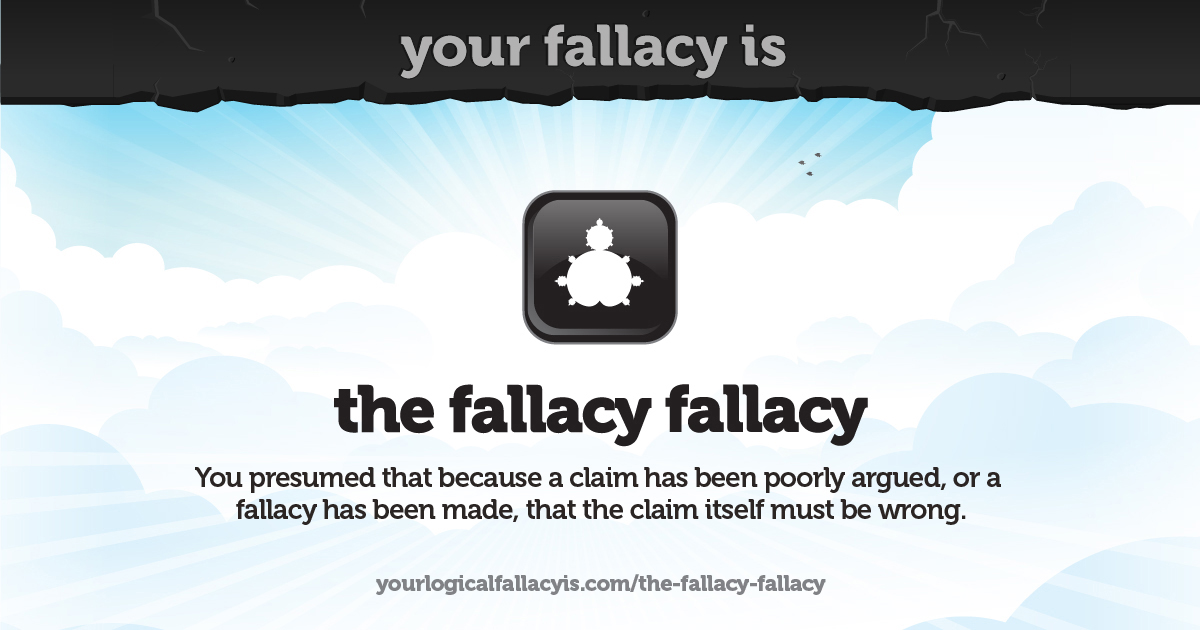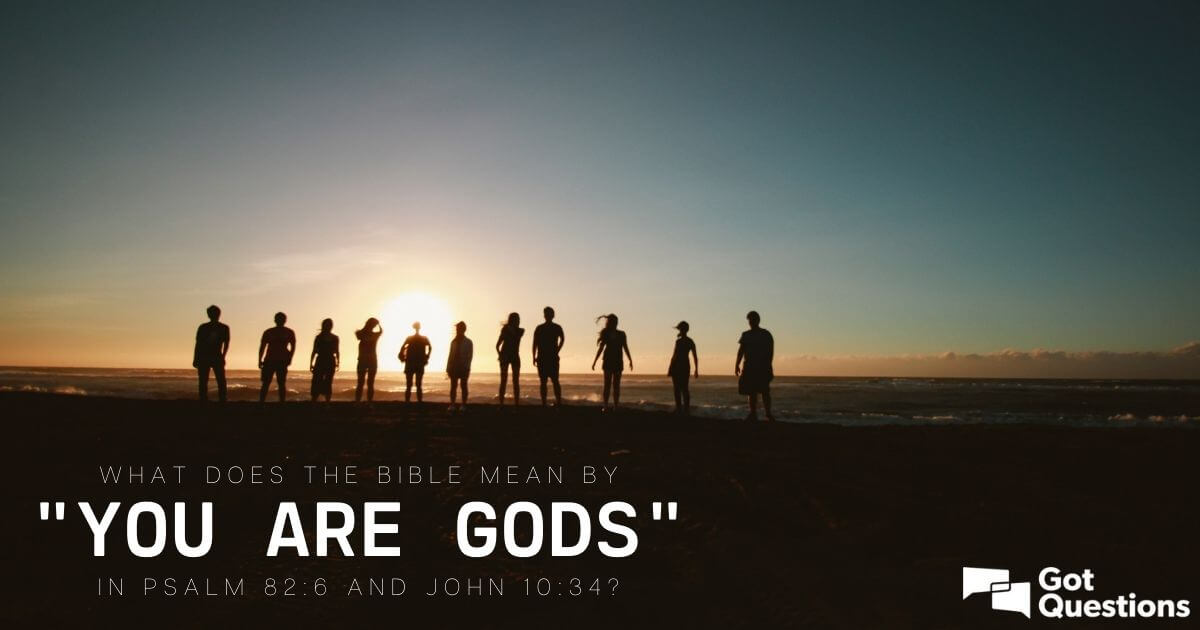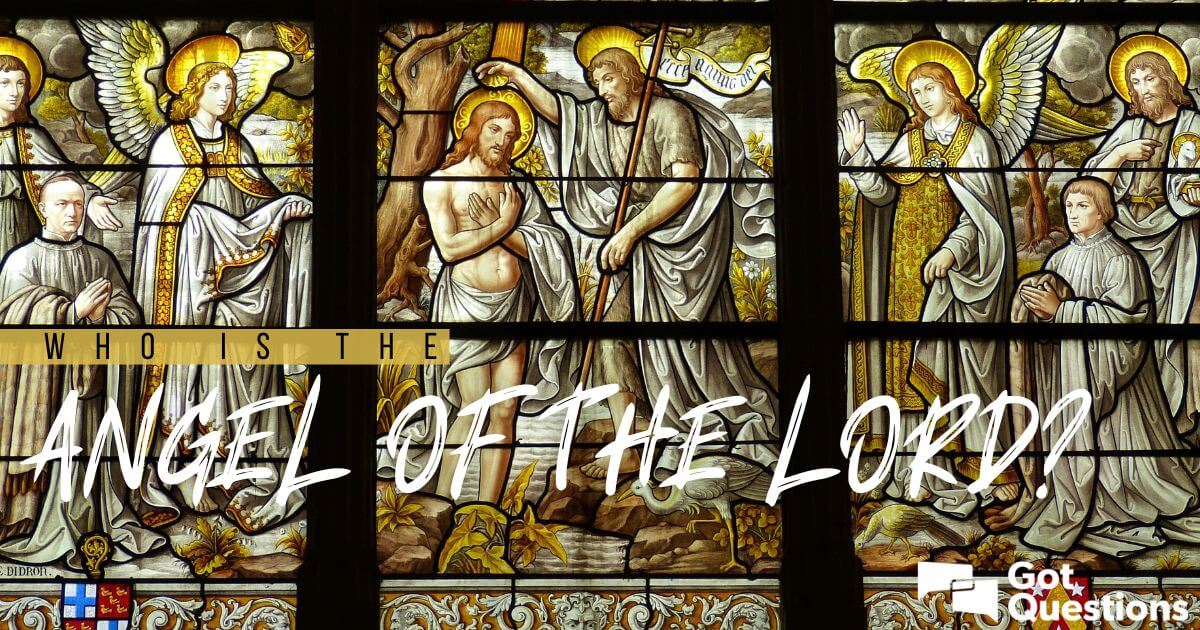csuguy
Well-known member
Saying it doesn't make it so.
I don't merely say so - its a fact that I have elucidated in some detail already.
Which is somewhat of part of the reason I don't hold to any particular "doctrine," I just recognize that there is one God and He is three Persons (Father, Son, Holy Spirit).
This is some progress then - you admit that you can't defend the Trinity from scripture. However you insist upon this idea that God is divided into three personages - which you can't establish from scripture either.
Here's the problem:
You're attacking some doctrine that I do not hold to, rather than what I believe, which is that God is triune.
Could you focus more on what I believe, rather than what some doctrine says, in this discussion?
You are moving the goal because you recognize you can't defend the position you took just a post earlier. But changing your position from arguing that the Trinity is biblical to this idea that God is Triune won't help - both are equally unsupported by scripture.
Which I reject.
Which I don't particularly have any feelings for, one way or the other.
Look, I thought I made it clear that I don't agree with everything the catholics say. I just thought it might help you understand my position.
If you reject the Trinity doctrine and recognize that its indefensible, then that is fantastic! Great progress has been made. However, it also undermines your position that it's been the position of the church since the beginning; for you are admitting that by the fourth century the Catholic Church was formulating false Christology. I can't reasonably be sure what you mean by "Trinity" if you use and defend the term, claiming it's a core belief of Christianity since the beginning, and yet you can't point to anything historically that describes what you think is meant by the term.
I agree that "eternally begotten" is not in scripture.
Yet we have Jesus Himself saying that He was with God the Father before the world began, and that He created all things. That means He's not a created being, and has existed since before the creation began.
Not even the angels existed prior to day 2.
"Eternally begotten" is more than simply not being created - it's the idea that Jesus is constantly in a state of being begotten, the Father constantly in a state of begetting the son. Since God is perfect and since - they say - God cannot change, then he could never have not been the Father. Nor could he have at one point begot the Son and the next not be begetting him - for that would mean that God changed in some sense, and thus challenge his perfection. A really dumb argument - but that's the Trinity for you.
As for for John 1, that can be interpreted a number of different ways. For example, one classic approach that Church Fathers have used is to assert that the Word = Wisdom in the Proverbs...
| Proverbs 8:22-31 The Lord created me at the beginning of his work,[a] the first of his acts of old. 23 Ages ago I was set up, at the first, before the beginning of the earth. 24 When there were no depths I was brought forth, when there were no springs abounding with water. 25 Before the mountains had been shaped, before the hills, I was brought forth; 26 before he had made the earth with its fields, or the first of the dust[c] of the world. 27 When he established the heavens, I was there, when he drew a circle on the face of the deep, 28 when he made firm the skies above, when he established[d] the fountains of the deep, 29 when he assigned to the sea its limit, so that the waters might not transgress his command, when he marked out the foundations of the earth, 30 then I was beside him, like a master workman;[e] and I was daily his[f] delight, rejoicing before him always, 31 rejoicing in his inhabited world and delighting in the sons of men. |
It's not hard to see the parallels between what is said of the Word in John and of the Wisdom is Proverbs. An important point here is that Wisdom is said to have been the very first of God's works - before all else, and the foundation through which all else was made.
Personally, I'm inclined to view both the Wisdom of Proverbs and the Word in John as being more poetic than literal. "The word became flesh" = the manifestation of God's Wisdom, his plan for creation since the beginning, in the birth of the man Jesus Christ.
God the Father has always been God the Father, but not because He does not change.
Ok - on what basis then do you claim that God has always been the Father? If there never was a time when the Son was not - then he can't very well have originated from God.
Obviously, we're not talking about people. We're talking about the idea that God is three "Persons." (Father, Son, Holy Spirit) Please address THAT, and not this straw man you keep wanting to beat up.
Use your own words to define what you mean by God being three persons - because right now you are just throwing out a term belonging to a doctrine that you now claim to not hold. And then back-up your definition with scripture.
The First Person of the Trinity is called "The Father."
The Second Person of the Trinity is called "The Son."
The Third Person of the Trinity is called "The Holy Spirit."
These three Persons ARE in fact found in Scripture, and referred to as God.
Many more individuals than those three are called God in scripture. Why isn't "Moses" to be counted among them? It's not sufficient to find individual's in scripture that have in one sense or another been addressed as God.
Moses, whom you give as an example below, is called god, and even the Israelites were called gods (iirc), but the context clearly indicates that they are not, in fact, God, or gods for that matter.
However, the Father is God, based on context, and the Son is God, based on context, and the Holy Spirit is God, based on context.
You will have to demonstrate this supposed context that demonstrates that when the Son is called God or the HS is called God that it means that literally as opposed to the precedent established in scripture as seen with Moses and the angels. Merely insisting upon it doesn't make your case.
Either He is or He is not God. There's no in between, csu.
| John 10:34-35 Jesus answered them, “Is it not written in your law, ‘I said, you are gods’? 35 If he called them gods to whom the word of God came (and scripture cannot be broken), |
Since scriptures call those to whom the word of God came gods - and there is only one God - where do they fit into your Triune God? As you said - they either are or aren't God, there's no in between - and as Jesus said, scripture cannot be broken.
Yes, the Son's God is the Father, because the Father is, positionally, above the Son.
1. Good for you for recognizing that the two aren't equal and further rejecting the Trinity doctrine in favor of scripture.
2. If the Son has a God above him, then he cannot be God Almighty.
This begs the question that God is not triune.
If God IS triune, then what I said above stands.
It does not beg the question - if they are not equals then you have division and hierarchy among those individuals you claim to be one God. This is a contradiction - what you are really describing is polytheism.
This is where both capitalization in English and context come into play. I addressed this above.
That's not a valid argument - there is no capitalization in the underlying Hebrew and Greek
Again, context is important, especially within the same sentence.
What God said was that He made Moses as God to Pharaoh, and He made Aaron Moses' prophet.
God isn't saying "I have literally made you into God." No.
He's saying that it's like Moses is God, to Pharaoh, and that Aaron is his prophet.
So the Lord said to Moses: “See, I have made you as God to Pharaoh, and Aaron your brother shall be your prophet. - Exodus 7:1 http://www.biblegateway.com/passage/?search=Exodus7:1&version=NKJV
Clearly, Moses wasn't God, nor was He ever made to be God. It's called a metaphor. Moses wasn't literally God.
Christ, on the other hand, IS literally God.
First of all, there is no "as" in the Hebrew. It literally renders: I have made you God to Pharaoh (https://biblehub.com/interlinear/exodus/7-1.htm). I do agree that he wasn't being literal, of course. The point is that between Moses and the angels, there is plenty of biblical precedent in the OT for addressing agent's of God as if they were God. That means not only do you need to find scriptures that call Jesus God, but you need to demonstrate how these verses are applying the term literally vs symbolically.
That was God Himself, not an angel.
Read closer:
| Exodus 3:1-2 Now Moses was tending the flock of Jethro his father-in-law, the priest of Midian, and he led the flock to the far side of the wilderness and came to Horeb, the mountain of God. 2 There the angel of the Lord appeared to him in flames of fire from within a bush. Moses saw that though the bush was on fire it did not burn up. |
No, again, that was God Himself, specifically, God the Son, appearing in what is known as a "Theophany," or "Christophany."
False, Christ was never an angel. Hebrews chapter 1 is very explicit on this point.
Hebrews 1:5-8 For to what angel did God ever say, “Thou art my Son, today I have begotten thee”? Or again, “I will be to him a father, and he shall be to me a son”? 6 And again, when he brings the first-born into the world, he says, “Let all God’s angels worship him.” 7 Of the angels he says, “Who makes his angels winds, and his servants flames of fire.” 8 But of the Son he says, “Thy throne, O God,[a] is for ever and ever,... |
A capital "G" has no significance; there's no capital letter in the underlying Greek & Hebrew scriptures. That's just the translators following convention.But not "God" capital G.
Except that they aren't.
Thus, Jesus being referred to as God would be blasphemy if he was not actually God.
They are and I've provided numerous examples
Trinitarians are monotheistic. Please keep that in mind.
Insisting you are monotheistic while also declaring that there are multiple, distinct entities with a hierarchy that are each God Almighty is just contradictory gibberish. You can't expect to be taken seriously when you are constantly contradicting yourself.
As I've said repeatedly, I don't hold to any particular "Trinity doctrine."
First it's "Trinitarians are monotheistic. Please keep that in mind." Then it's "I don't hold to any particular Trinity doctrine." Make up your mind.
Why do you assume they didn't?
AND
Why do you assume that it had to be explicitly taught?
Why do you assert that they did not?
See my last post so I don't have to keep repeating myself.
Appeal to the stone.
Incorrect - I didn't simply state your position was absurd without reason. Go back and re-read what was said and try again.
It is recorded, just not as explicitly.
If it's not explicit then it isn't recorded. You can try to extrapolate it - but you appear to have given up any attempt to defend the Trinity (or w/e you claim to believe now) via scripture.
This is why going beyond Scripture for doctrine is problematic. The "Church Fathers in the early church" you refer to are not, repeat, NOT authoritative when it comes to biblical doctrine. They were NOT inspired by God directly to write what they wrote, and so their writings are NOT to be taken as authoritative over the what the Bible says. Yes, they sometimes say things that agree with the Bible, but they also say things that do not align with it.
Their input is useful, to be sure, but not to be taken as absolute.
I never suggested that we should just believe whatever theology is put forth by the Church Fathers. Once again - I'm referring to them as historical witnesses of what the early church actually taught and believed. This isn't difficult to understand.
Apparently your position is that God is triune because YOU say so, and without any other justification.God being triune isn't true or false based on whether it was taught by the early church.
Neither is Jesus. There are numerous scriptures which differentiate Jesus from God and none which insist that when Jesus is called God that it is meant literally as opposed to how it is applied to God's other agents.The difference is that Moses was not God.
The verse I provided earlier states, almost explicitly, that the Holy Spirit is God:
But Peter said, “Ananias, why has Satan filled your heart to lie to the Holy Spirit and keep back part of the price of the land for yourself?While it remained, was it not your own? And after it was sold, was it not in your own control? Why have you conceived this thing in your heart? You have not lied to men but to God.” - Acts 5:3-4 http://www.biblegateway.com/passage/?search=Acts5:3-4&version=NKJV
If that isn't clear enough, here is what is said:
"Why have you lied to the Holy Spirit, to God?"
Peter was equating the Holy Spirit to God.
"Almost explicitly" lmao! Aka it doesn't - you are interpreting it that way without justification because that's what you want it to say. You haven't demonstrated from the context why we should interpret it any differently from when Moses or the angels and their words and deeds are referred to as if being God's. Unless you can demonstrate from scripture that this usage of the word "God" is distinct from how it has been applied throughout the OT to those who aren't themselves God Almighty, then biblical precedence is obviously the more objective interpretation.
Find me one person in the Bible who was righteous in the eyes of God, aside from Christ, who said any of those things in the same way Christ meant them.
You can't, because no one could be considered righteous if he said "follow me," "pray and act in my name," "believe in me," that you are "sanctified by faith in me," etc.
No one denies that Jesus was unique - that does not establish that he was God. Least of all because he didn't claim to be God - but his Son. Believe what he says about himself rather than trying to redefine what "Son" means to suite your theology. Christ gave himself over to God completely, and chose to sacrifice himself for man of his own freewill - thus he was rewarded with being made King over the rest of creation (but not over God).
Did you even bother reading what it was that I quoted Christ as saying? Forget the verses they're in for a moment, can you honestly say that a righteous man could demand someone to love him "more than" someone's family members if it wasn't God? Can you honestly say that a righteous man could claim to be "greater than the temple," "than Jonah," "than Solomon"? How about "Keep my commandments," which is both claiming God's commandments as one's own, and demanding that a person keep them? How about accepting worship? Not even the perfect angels accepted people worshipping them, pointing the one worshipping to God, yet Jesus accepted it when people worshipped Him.
The ball is in your court on this one.
None of your examples make the argument that Christ had to be God. Your disbelief is not an argument.
As for worship, there is no prohibition against worship. Moses worshiped his father-in-law Jethro (Exodus 18:7); note that the same word in Hebrew translated as 'worship' is the same word used here that is translated as bowing down/prostrating. It is purely a product of our English translation that this fact is hidden - the translators, by convention, translate the word as 'worship' when applied to God but as 'bowing down' or 'prostrating' etc when applied to others.
You are forgetting that you need to substantiate your claims. You are engaging in an Argument form Ignorance - "you can't show the early church didn't secretly believe it, so there!"You're forgetting that such things do not need to be explicit.
I didn't say "God is a 'What'."
I said God is WHAT the Father, Son, and Holy Spirit is.
The three Persons are God. It is WHAT they are.
Father, Son, and Holy Spirit are WHO they are. He is God (WHAT).
Now you can't even get through two sentences without contradicting yourself ....
Scripture never treats God as a thing/substance. God is a WHO in scripture. But go ahead and try to argue from scripture that God is a mere substance - I'll go grab some popcorn.
Start one, if you like. I'm game!
Perhaps after this one; responding to these long posts is time consuming.
In what way am I mocking Christ's life and sacrifice?
Bald-faced assertions like this demand evidence.
I've already explained this in detail. You need to stop and read all of what I wrote before replying.
God cannot be tempted, cannot sin, can never not do God's will. There's no freewill if you don't have a choice and you can't overcome temptation if you can't be tempted. Thus - if we adopt the Trinitarian position - all of Christ's suffering and trials were nothing more than a bit of theatrics.In what way does my position deny Him free will or the accomplishment of overcoming temptations?
I just gave you sufficient evidence.
Here's some more (and where I got the above chart from):
You haven't given sufficient evidence - as I addressed in detail in my last post. Perhaps if you questioned the resources you are citing before posting them, then you would understand why that chart is flat out wrong.
Nope. This is why you don't "get it."
There are three PERSONS, not three Gods. The three PERSONS are ONE God.
He is Father, Son, Holy Spirit.
You have yet to define what you mean by "person" and "God" and to defend these definitions using scripture. Nor have you explained, logically, how three persons can be one God. You go back and forth on whether you even identify as a Trinitarian.
It seems like part of the problem you have is your definition of what it means to die.
Christ (God the Son) died physically when He gave up His spirit. (John 19:30)
He died Spiritually when He was separated from His Father in Heaven ("My God, My God, why have you forsaken me?"), becoming sin for us and nailing the law to the cross
So at which point did God proper die? Or are you in fact walking back and denying that God ever died.
He wasn't putting on an act. He really was tempted.
Then he wasn't God - for God cannot be tempted by evil.









